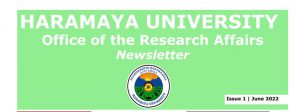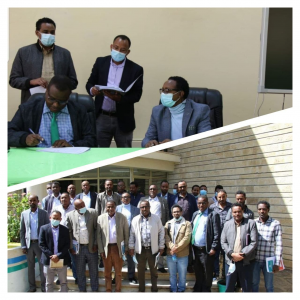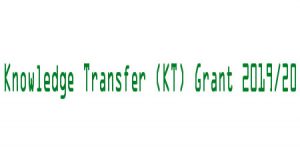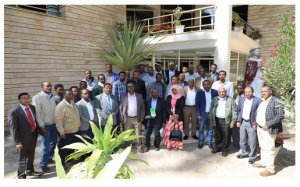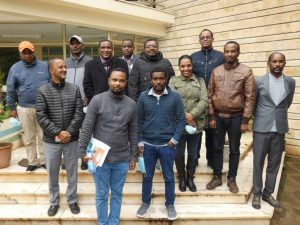Fair planet in collaboration with Haramaya University and different organizations held an open day on vegetable production technology at the main campus of the University on April 29, 2017.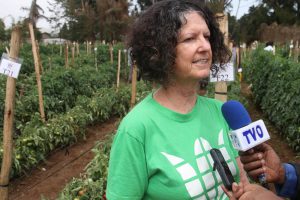
On the occasion, the founder of the organization, Dr. Shoshan Haran, acknowledged the collaboration of different organizations including Haramaya University, the regional Bureau of Agriculture, different seed companies, the Netherlands Government and Israeli volunteers for the realization of Fair Planet’s missions. She noted that Fair Planet is a nonprofit organization whose mission is to increase food security and provide new economic opportunities for farmers stuck in poverty. She indicated that Fair Planet is engaged in a unique and long-term technology transfer process: by facilitating access of smallholder farmers to seeds of the highest-quality vegetable varieties suitable for their needs, and at the same time, training them to use these seeds.
Dr. Haran further pointed out that seed companies provide access to their existing high quality varieties and respective know-how; eventually, they will gain access to new markets created through Fair Planet’s activities and ensure sustainable supply of seeds to smallholder farmers. Likewise, farmers gain access to high-quality seeds which enables them to grow and sell significant yields with minimal changes in their production technologies. The increased yield and additional income of these farmers will provide their families with greater food security along with new economic and educational opportunities.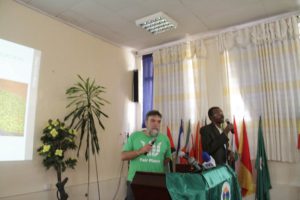
Dr. Allon Haberfeld, a vegetable breeder from the Fair Planet team, disclosed that on the current year, Fair Planet has tested 34 tomato, 24 hot pepper and 13 onion varieties at Haramaya University. He indicated that, from previous seasons’ results, four varieties selected and released were tested on 70 farmers’ fields in Haramaya District and Harari Regional State. He noted that, from previous season’s harvest, farmers on average earned 20 to 30 thousand Birr from one-tenth of a hectare in Haramaya area while results from Dire Dawa showed 40 to 50 thousand Birr on similar plot of land.
University Officials, experts, development agents and farmers recognized and praised the work done by Fair Planet, particularly by the Israeli volunteers. They promised to collaborate with Fair Planet and Haramaya University and adopt the technology to their system because of its sustainability.
Representative of Dire Dawa Bureau of Agriculture, Mr. Mohammed, shared his experience and said they have already scaled up the technology and reached over 500 farmers during 2016 summer and that they are planning to reach more than 1000 farmers in 2017 summer. Likewise, Harai Region Bureau of Agriculture representative, Mr. Zekaria, acknowledged the technology of Fair Planet. Though they started late on 18 farmers’ fields and didn’t see the final result of the training and technology transfer activity yet, from what they observed so far, he indicated that they are satisfied and plan to scale it up to 500 farmers in the next fiscal year.
 Haramaya District, on the other hand, was found to be low adopter of the technology because of farmers’ fear that tomato and other warm season vegetables could be damaged by frost in addition to sensitivity to foliar diseases during rainy periods. However, after two years of training and demonstration, some farmers have changed their attitudes and started showing interest. As a result, the district’s Bureau of Agriculture has disclosed its plan to scale up the program at least to 500 farmers during next season using irrigation.
Haramaya District, on the other hand, was found to be low adopter of the technology because of farmers’ fear that tomato and other warm season vegetables could be damaged by frost in addition to sensitivity to foliar diseases during rainy periods. However, after two years of training and demonstration, some farmers have changed their attitudes and started showing interest. As a result, the district’s Bureau of Agriculture has disclosed its plan to scale up the program at least to 500 farmers during next season using irrigation.
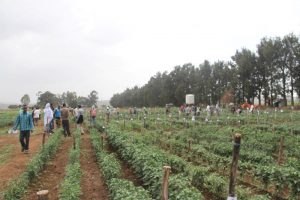 Finally, participants visited the experimental field in Haramaya University as well as some of the farmers’ fields and showed great enthusiasm seeing the activities underway.
Finally, participants visited the experimental field in Haramaya University as well as some of the farmers’ fields and showed great enthusiasm seeing the activities underway.

